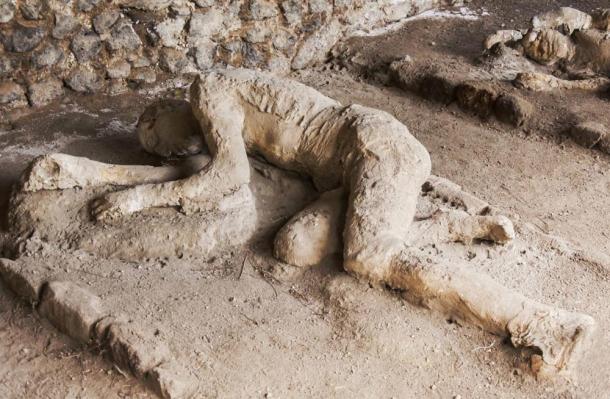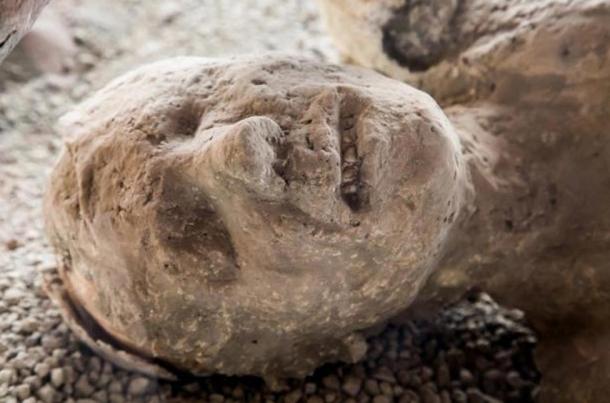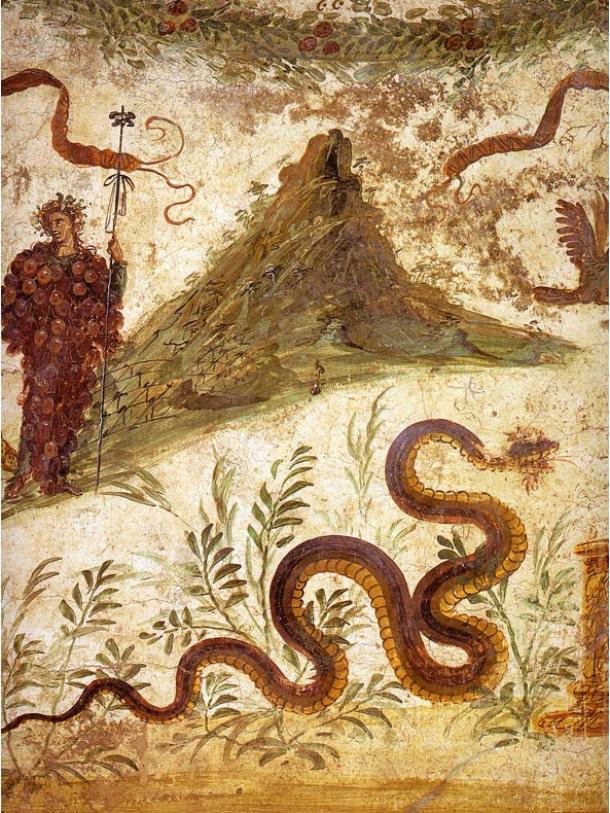When man grows overconfident and full of hubris in his accomplishments and importance, mother nature, or the gods, remind mankind who is really in charge. Or so it may have seemed to the ancients, who witnessed the awesome and raw power of erupting volcanos, and sent out warnings through time in the form of religious lessons, myths, legends and chronicles.
These amazing, violent occurrences were so traumatic and unnatural (or supernatural) to early cultures that since prehistoric times myths and legends have sprung up throughout societies in attempts to explain the events, or protect against them. We explore a few of the more explosive cases here.
 Natural History: A Sel...
Best Price: $5.98
Buy New $11.76
(as of 05:55 UTC - Details)
Natural History: A Sel...
Best Price: $5.98
Buy New $11.76
(as of 05:55 UTC - Details)
Vesuvius – The Destructive Power of Jupiter
Mount Vesuvius had what is probably the most infamous volcanic eruption on August 24, 79 AD. This multiday event was an unmitigated disaster for the Roman cities of Pompeii, Herculaneum, and others.
Notably, the people of Pompeii suffered greatly as the 300 degrees centigrade (572 Fahrenheit) clouds of gas moved down the volcano and seared them alive— when the ash didn’t choke them, or the flying molten rock and debris didn’t crush, pummel or ignite them.

Some of the victims of Pompeii were sitting, some lying when the superhot gas cloud enveloped them. (Bigstock photo)

Some of the victims of volcanic gas cloud were clearly in agony (Bigstock photo)
The eruption was a hundred thousand times more thermally energetic than the Hiroshima atomic bombing, and there remains only one
 BOIRON USA - Hekla Lav...
Buy New $5.94
(as of 09:40 UTC - Details)
surviving witness account to the cataclysm: Pliny the Younger, nephew to ancient historian Pliny the Elder, left behind letters describing the event, and told how his uncle perished in the eruption, as did countless others.
BOIRON USA - Hekla Lav...
Buy New $5.94
(as of 09:40 UTC - Details)
surviving witness account to the cataclysm: Pliny the Younger, nephew to ancient historian Pliny the Elder, left behind letters describing the event, and told how his uncle perished in the eruption, as did countless others.
Prior to the eruption of 79 AD, Mount Vesuvius had a long historic and mythical tradition. The mountain was considered a divinity, and was related with serpent imagery, as seen in the preserved frescoes from Pompeii. Vesuvius had connections to the power of Jupiter—god of sky and lightning—and Hercules. During his labors, legend had Hercules passing through the “plain of fire”, “from a hill which anciently vomited out fire … now called Vesuvius.” It was said to be inhabited by giants (which might explain loud noises, rumbling, or spewing debris). It is not known for certain if Herculaneum was named after the divine hero, but certainly the Romans regarded Mount Vesuvius as being devoted to the demigod.

Fresco of Bacchus and Agathodaemon with Mount Vesuvius, as seen in Pompeii’s House of the Centenary. Note the serpent imagery. (Public Domain)
 The Lost Empire of Atl...
Best Price: $2.00
Buy New $11.98
(as of 09:15 UTC - Details)
The Lost Empire of Atl...
Best Price: $2.00
Buy New $11.98
(as of 09:15 UTC - Details)
 Pompeii: A Novel
Best Price: $1.50
Buy New $9.95
(as of 01:20 UTC - Details)
Pompeii: A Novel
Best Price: $1.50
Buy New $9.95
(as of 01:20 UTC - Details)
 Amazon.com $25 Gift Ca...
Buy New $25.00
(as of 06:25 UTC - Details)
Amazon.com $25 Gift Ca...
Buy New $25.00
(as of 06:25 UTC - Details)






